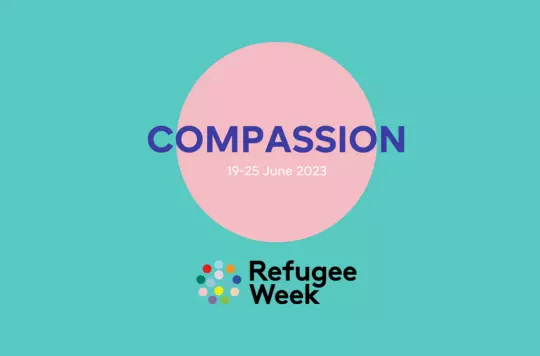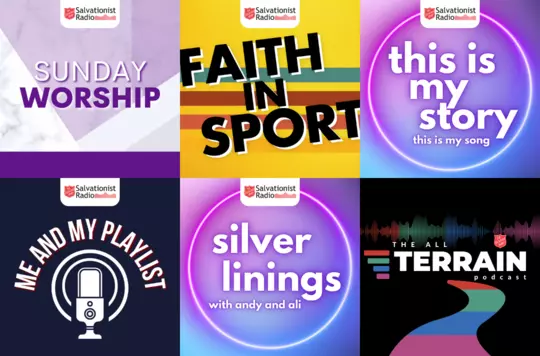3 July 2023
Hear! Wash! Learn! Come! How do we shape our behaviour?
Major Martin Hill
Major Martin Hill asks what steps we are taking to change our behaviour.
Key text
In a sketch from his TV series The Bob Newhart Show, the American comedian plays the role of a therapist whose client shares with him her problem behaviour. He responds with short, sharp advice: ‘Stop it!’ However much she explains the possible reasons for her situation, he repeats the same two words: ‘Stop it!’
In the opening chapter of Isaiah, the prophet relays words from God. His short, sharp advice to the people and their leaders can be summarised in two words – ‘Stop it!’ – a demand that he repeats.
There is a significant difference between the approach of Newhart’s therapist and that of God. The therapist is not interested in hearing, let alone understanding, his client’s situation, scoring zero on empathy. God, however, wants a meaningful conversation – dialogue not monologue – with mutual understanding. He sees his relationship with his people as that of a parent with their child. His advice is the outcome of a loving relationship, but is still summarised in two words: ‘Stop it!’
There is a significant difference between the approach of Newhart’s therapist and that of God. The therapist is not interested in hearing, let alone understanding, his client’s situation, scoring zero on empathy. God, however, wants a meaningful conversation – dialogue not monologue – with mutual understanding. He sees his relationship with his people as that of a parent with their child. His advice is the outcome of a loving relationship, but is still summarised in two words: ‘Stop it!’
That is the gist of verses 18 to 20, the culmination of our study passage.
Pause and reflect
- Imagine God is your therapist.
- What would you ask him to help you with?
- What advice do you suspect he might give?
In the opening verses of our study passage, Isaiah cries out to the heavens and earth to listen to the message he has received from God: The Lord brought them into being and reared them, but now they are rebelling, thinking that they know better than their parent. Even animals can recognise who is boss, but Israel seemingly can’t. They are a bunch of sinful, corrupt evildoers.
Next, the Lord sounds off to rulers, those with authority. Today, they would include those with responsibility – teachers, leaders, opinion formers, influencers – those who set the tone and example. Accountability, however, is not wholly theirs. The people cannot shirk their individual responsibility.
He uses the metaphor of Sodom and Gomorrah as an example of bad rulers of corrupt people. The people do pray, but these are guilty hands that they lift in prayer – presenting to God the very hands that have dishonoured him. God wants integrity not hypocrisy, sincerity not show.
Pause and reflect
- Who has been a good influence upon you?
- Who do you influence?
- In what ways do you influence them?
The Lord tells his people: ‘Your hands are full of blood! Wash and make yourselves clean’ (vv15 and 16).
It’s not the perfection of the sacrificial animal that matters, but the condition of the person offering it. ‘Sacrifice’ literally means ‘to make something sacred’. God requires his people to make themselves holy by giving God the sacrifice of a blameless life. Effectively, he says: ‘You, not the animal, pay the cost. If you need to kill something, then make it your sinful nature. I don’t want to see your evil deeds. Stop doing wrong. Stop it!’
Isaiah sets out what is important to the Lord: ‘Learn to do right; seek justice. Defend the oppressed. Take up the cause of the fatherless; plead the case of the widow’ (v17).
The Lord requires action, not sympathy. He commands his people to ‘seek’, ‘defend’, ‘take up’ and ‘plead’. They are so ingrained in their self-centred way of thinking that they need re-educating. New habits need to be learnt. They don’t come naturally.
Pause and reflect
- Which is more important in changing our behaviour, a new understanding or self-discipline?
Any salesperson promoting a new product knows that they can’t just enthuse about the merits of their product. They need to close the deal. The matter needs to be finalised. The Lord doesn’t just want to leave his people with something to think about. He also wants a result, so issues an invitation: ‘Come now, let us settle the matter… Though your sins are like scarlet, they shall be as white as snow; though they are red as crimson, they shall be like wool’ (v18).
The Lord’s deal is this: he is willing to write off past sins. He will overlook ethical bankruptcy. Going forward, the people have two options. They can willingly obey and flourish or they can rebelliously resist and die by the swords of their enemies.
The message that Isaiah delivers starts with ‘stop it’ and finishes with ‘start it’ – with a new understanding shaping new behaviour.
Bible study by

Major Martin Hill
Retired Officer, East Lothian
Discover more

As part of Refugee Week, find out why The Salvation Army is involved in community sponsorship initiatives.



